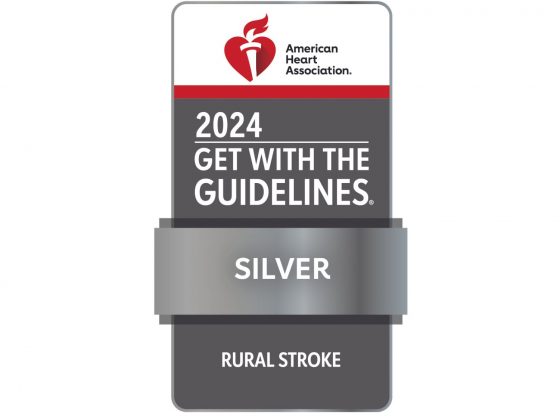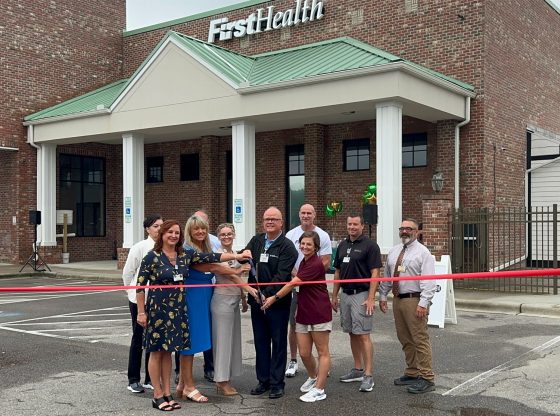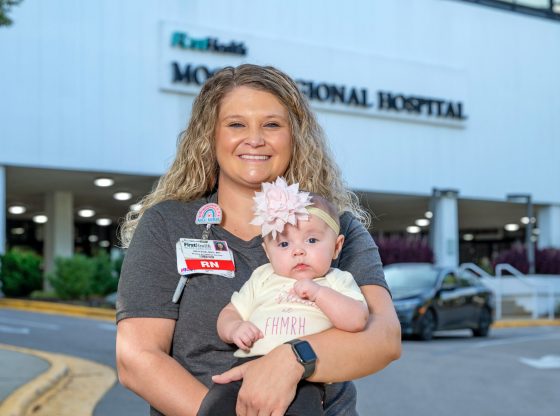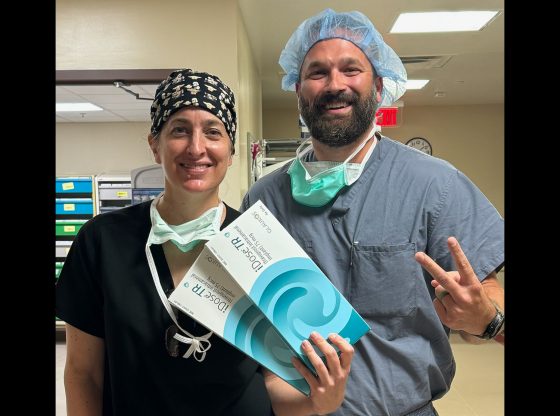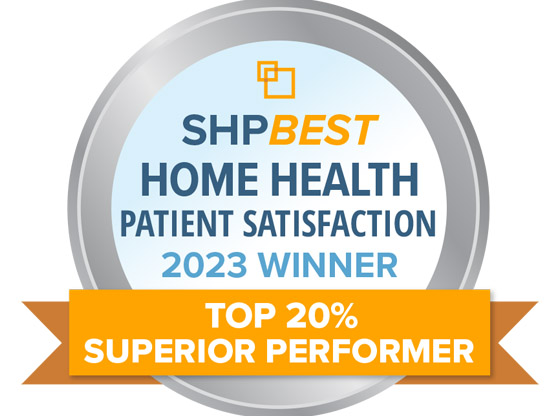Central Carolina Hospital has received the American Heart Association’s Get With The Guidelines® – Stroke Rural Recognition Silver award for its ongoing efforts to optimize stroke care and eliminate rural healthcare outcome disparities.
This award recognizes the efforts of hospitals nationwide to address the unique health needs of rural communities. People who live in rural areas live an average of three years fewer than their urban counterparts. They have a 40 percent higher likelihood of developing heart disease and face a 30 percent increased risk for stroke mortality — a gap that has grown over the past two decades.
“Rural communities such as ours deserve high quality stroke care,” said Dave Santoemma, Chief Executive Officer of Central Carolina Hospital. “I’m proud of our team for their commitment to stroke care excellence and this achievement.”
Last year, CCH received the American Heart Association’s Get With The Guidelines® – Stroke Rural Recognition Bronze award.
“We are proud to be recognized for the important work we do every day to improve the lives of people in Lee County who are affected by stroke, giving them the best possible chance of recovery and survival,” said Sarah Ricks, RN, MSN, CPHRM, Director of Quality, Patient Safety and Risk Management at CCH. “We work every day to improve the lives of people who are affected by stroke, giving them the best possible chance of recovery and survival.”
The American Heart Association award recognizes hospitals nationwide for their efforts toward acute stroke care excellence as demonstrated by composite score compliance to guideline-directed care for:
Intravenous thrombolytic therapy
Timely hospital inter-facility transfers
Dysphagia screening
Symptom timeline and deficit assessment documentation
Emergency medical services communication
Brain imaging
Stroke expert consultation
As the world’s leading nonprofit organization focused on heart and brain health for all, the American Heart Association recognizes the importance of healthcare services provided to people living in rural areas by rural hospitals that play a vital role in initiation of timely evidence-based care.
“Patients and health care professionals in Lee County face unique healthcare challenges and opportunities,” said Karen E. Joynt Maddox, MD, MPH, volunteer expert for the American Heart Association, co-author on “Call to Action: Rural Health: A Presidential Advisory From the American Heart Association and American Stroke Association” and co-director of the Center for Health Economics and Policy at the Institute for Public Health at Washington University in St. Louis, MO.
“Central Carolina has furthered this important work to improve care for all Americans, regardless of where they live.”
About Central Carolina Hospital
Central Carolina Hospital, a Duke LifePoint Hospital, is a 137-bed acute care hospital that serves the health care needs of Lee County and surrounding communities. With nearly 200 providers, the hospital offers a wide range of specialties, including cardiology, orthopedics, general surgery, obstetrics, gynecology, otolaryngology, emergency medicine, emergency medical services, gastroenterology, pediatrics, hospitalist services, internal medicine, nephrology, neurology, hematology, urology, podiatry, dentistry, pulmonary medicine, and wound care and hyperbaric medicine.
Hospital services include emergency room, physical and occupational therapy, ophthalmology, cardiac rehabilitation, diagnostic imaging and radiology, inpatient and outpatient surgery, dialysis, maternity services, nutritional counseling by clinical dietitians, and diagnostic cardiac catheterization. Central Carolina Hospital was reaccredited by the Joint Commission for a three-year period in 2021.
About Get With The Guidelines®
Get With The Guidelines® is the American Heart Association/American Stroke Association’s hospital-based quality improvement program that provides hospitals with the latest research-based guidelines. Developed with the goal of saving lives and hastening recovery, Get With The Guidelines has touched the lives of more than 14 million patients since 2001. For more information, visit heart.org.
Contributed.


